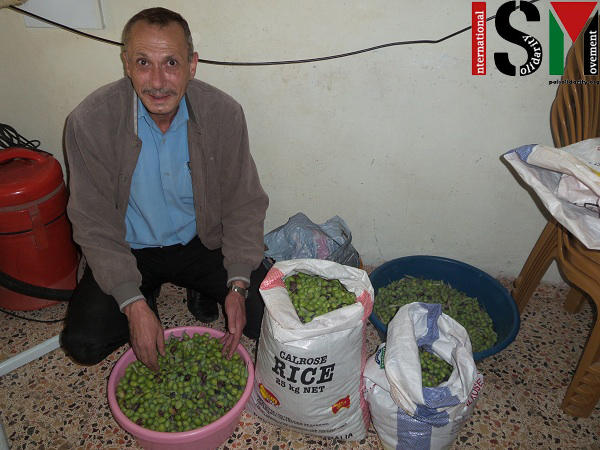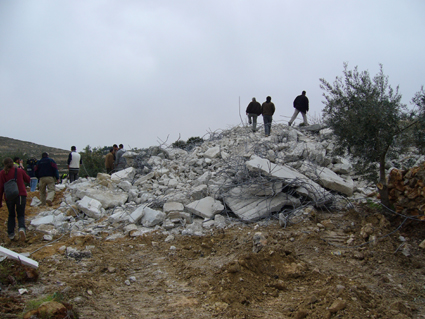Tag: Video
-
Remembering Hashem al-Azzeh
23rd October, 2015 |International Solidarity Movement, Al-Khalil Team | West Bank, occupied Palestine We are remembering our great friend & the great friend of Hebron, Hashem al-Azzeh, who gave this interview with ISM last year before his tragic passing earlier this week.
-
In al-Khalil (Hebron) the situation grows gravely worse
18th October 2015 | International Solidarity Movement, al-Khalil team | Hebron, occupied Palestine After a day of intensified violence in al-Khalil the midnight hour brought horrifying screams for help from local mosques, the screaming sirens of ambulances and clouds of teargas drifting through the streets from Bab al-Zawiya. Three young Palestinians in Khalil lay dead…
-
Palestinian and international civilians to resist revenge home demolitions
16th October 2015 | International Solidarity Movement, Al-Khalil team | Nablus area, occupied Palestine Palestinian civilians joined by International solidarity activists will gather tonight, Friday 16, October 2015, at the Nablus city homes of Yahya Hamad, Karam Al-masri and Sameer Al-kosa after Israeli forces threatened revenge demolitions within 24 hours. Yesterday night, hundreds of Palestinians…



